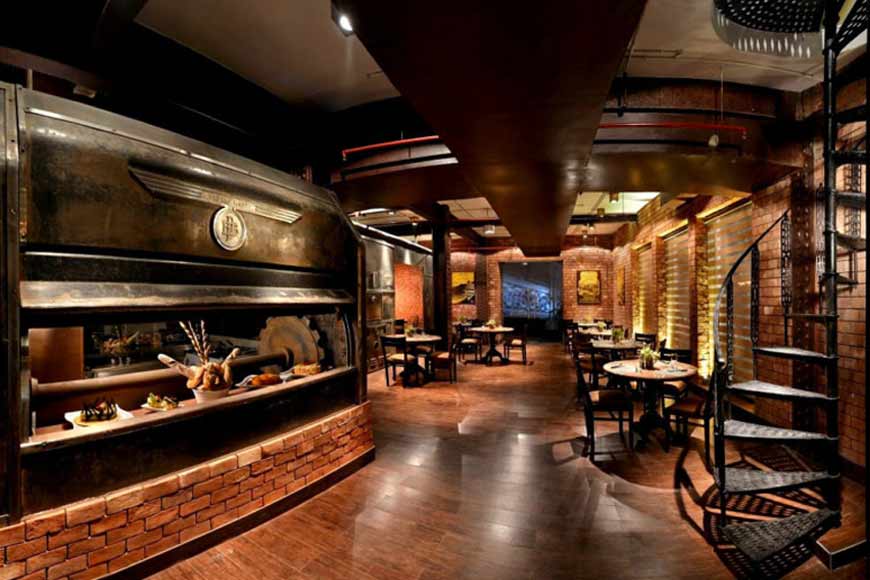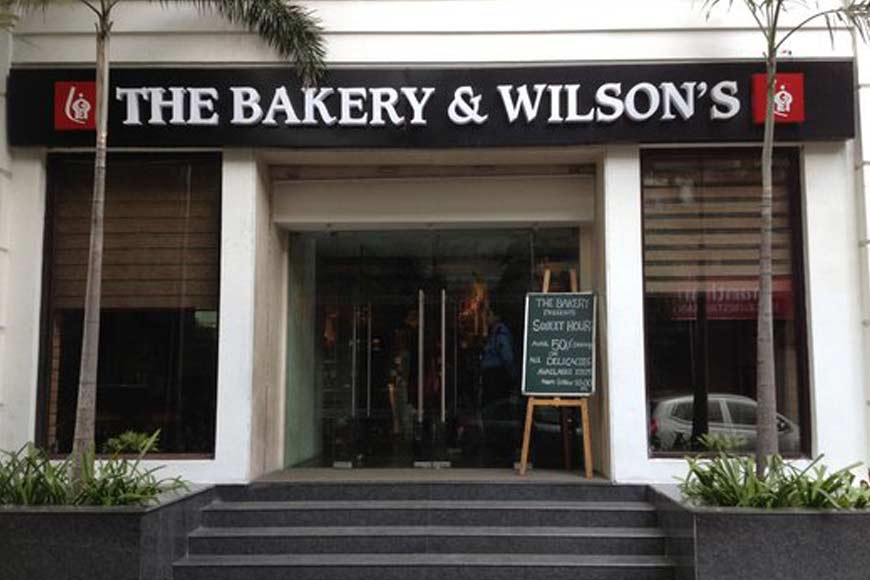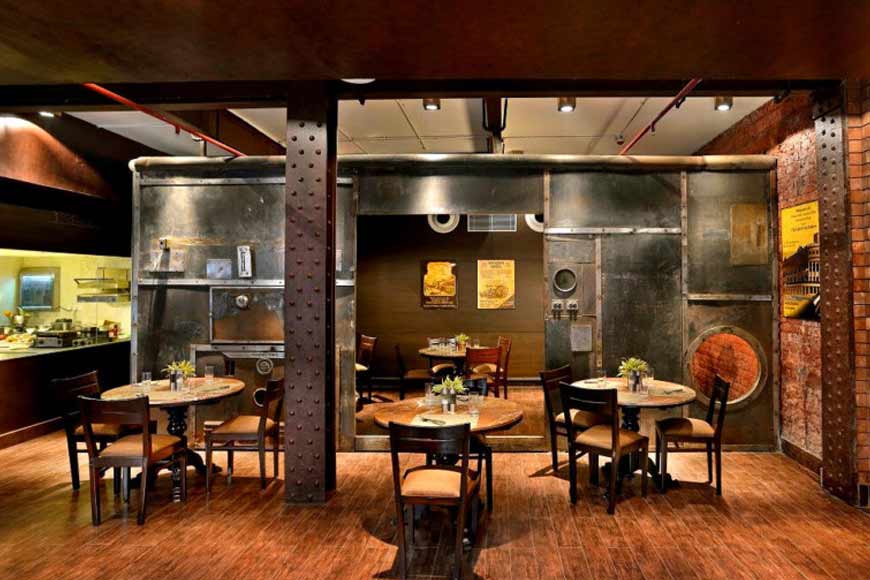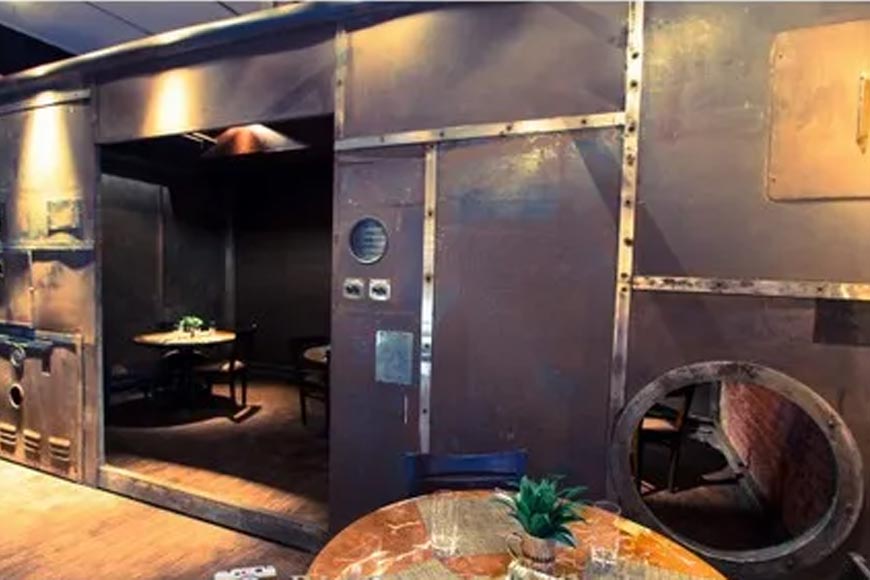Culinary heritage award for Great Eastern Hotel bakery, city’s beloved cake shop

Some would say this was long overdue. On June 12, the Lalit Great Eastern Hotel received a Culinary Heritage Award from the Indian National Trust for Art and Cultural Heritage (INTACH). These awards have been instituted to “create and enhance awareness of heritage in general, to specifically spread the need for conservation of the city’s built environment, to create a holistic interest in the city’s past”, according to the INTACH concept note. Yet another important aspect of these awards is to attract tourism based on specific themes, such as culture and food.
Among previous recipients of these awards are such legendary establishments as Trinca’s, Mocambo, Kwality, Shiraz, Dilkhusha, Girish Chandra Dey and Nakur Chandra Nandy, Allen Kitchen, Nabin Chandra Das, Bhim Nag, Paramount, Sabir’s Hotel, Niranjan Agar, Eau Chew Restaurant, KC Das and Indian Coffee House.

According to INTACH convenor G.M. Kapur, the Lalit Great Eastern has been chosen by virtue of its celebrated bakery, which he thinks may be the oldest modern bakery in the city. This stands to reason, since David Wilson, the founder of what was first Wilson’s Hotel, was originally a baker who ran his bakery at the site where he set up a hotel in 1840 or 41. This later became the Auckland Hotel in honour of Governor-General George Eden, first Earl of Auckland.
Wilson’s Hotel opened with 100 rooms and a department store on the ground floor. After it became the Auckland Hotel, it was expanded in the 1860s and its managing company renamed from D. Wilson and Co. to Great Eastern Hotel Wine and General Purveying Co. In 1883, the hotel was electrified, thus probably becoming the first hotel in India to be illuminated by electricity. Finally, it was renamed the Great Eastern Hotel in 1915 and, nearly a century later in November 2013, reopened after extensive renovation as the Lalit Great Eastern courtesy the Lalit Group.

While it has once again become one of the city’s premier accommodation options, the Great Eastern still has a long way to go to recapture the glory of its heydays, when, to borrow Rudyard Kipling’s famous description in The City of Dreadful Night, “a man could walk in at one end, buy a complete outfit, a wedding present, or seeds for the garden, have an excellent meal, a burra peg and if the barmaid was agreeable, walk out at the other end engaged to be married”. Fellow literary giant Mark Twain called it “the best hotel east of the Suez”, one which hosted guests ranging from Mahatma Gandhi to Ho Chi Minh, and Nikita Khruschev to Queen Elizabeth II.
Despite the renovations, the current building is still registered as a heritage structure and the new management has maintained certain essential features such as the facade and the grand staircase, appropriate for the oldest continuously functioning hotel in Asia.
Yet another striking feature is the hotel’s famous verandah overhanging the pavement, erected by Walter Macfarlane & Co. in 1883. In his book ‘Recollections of Calcutta for over Half a Century’ (1918), Montague Massey wrote about “a curious story regarding it, related by my friend, Shirley Tremearne”. Massey’s friend was a member of the hotel’s board of directors, eventually becoming its managing director.
According to Massey’s story, “Before it (the verandah) could be erected the sanction of the Municipality was necessary, and under the Act they were entitled to charge a fee of Rs. 100 per month for such sanction. The Municipality, however, refused to sanction it unless the Hotel Co. agreed to pay a monthly fee of Rs. 300. The Hotel Co. were in a fix, they had placed the order for the verandah as the Municipal Engineer, Mr. Jas. Kimber had approved the plans, and willy-nilly they had to consent.”

According to Massey, it was Tremearne who challenged the municipality’s arm-twisting tactics and eventually went right up to the Advocate-General, whereupon the municipality backtracked and meekly agreed to accept the Rs 100 as originally stipulated. Thus Great Eastern got its verandah, which became the model for several similar structures in years to come.
One hopes the INTACH award will revive interest in the famed Great Eastern bakery, which remained the city’s preferred cake shop even during the hotel’s leanest years, and the source of many a nostalgic tale. Heritage such as this is surely worth protecting.











